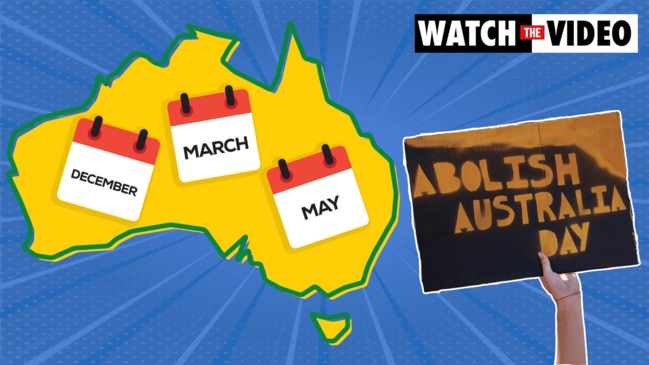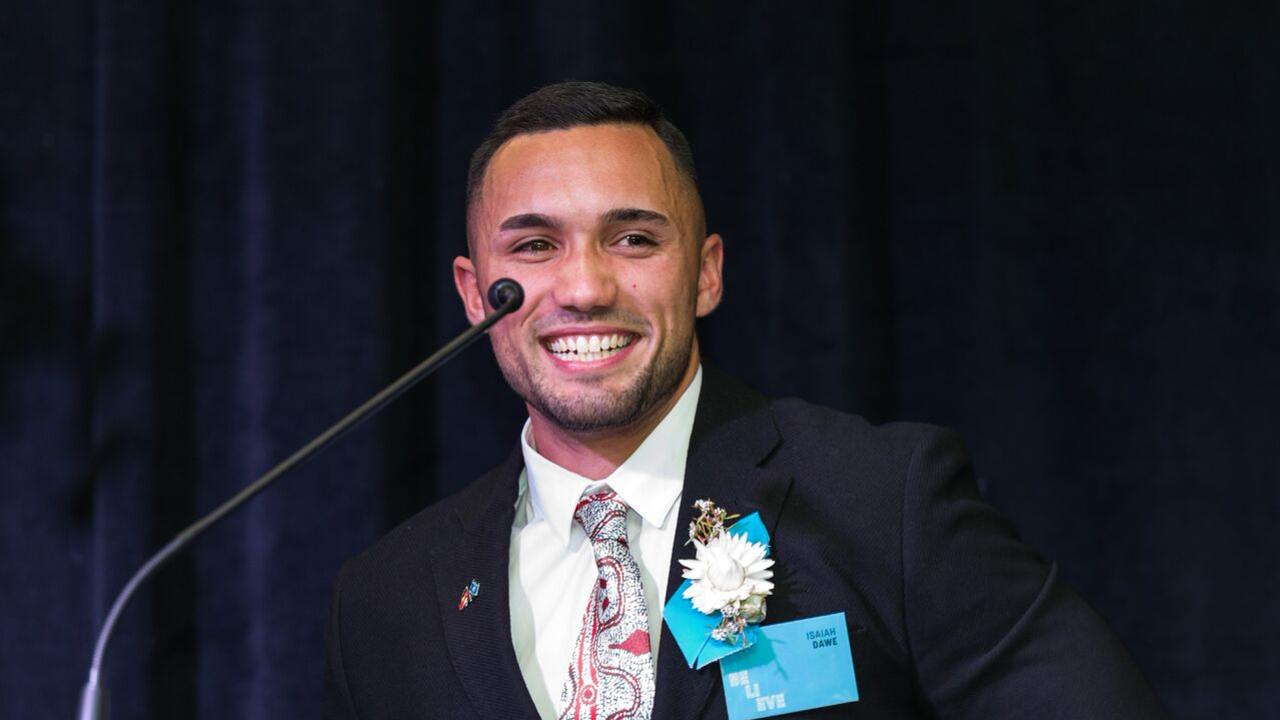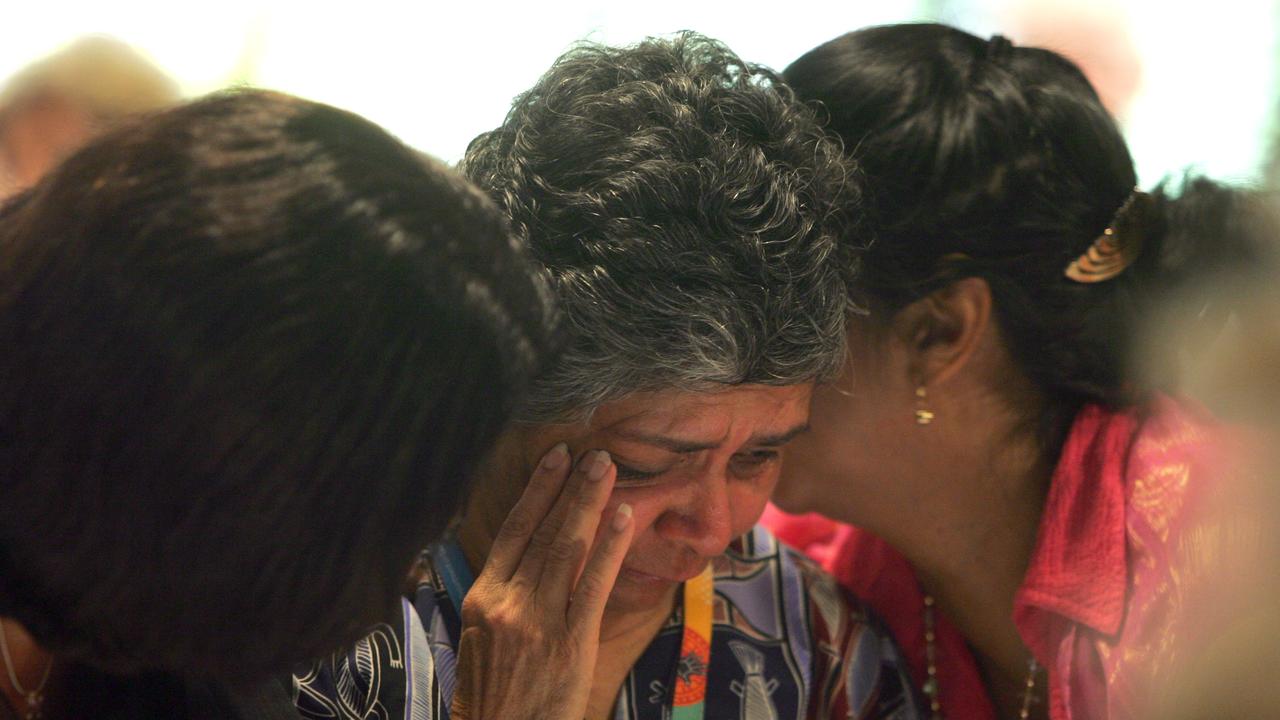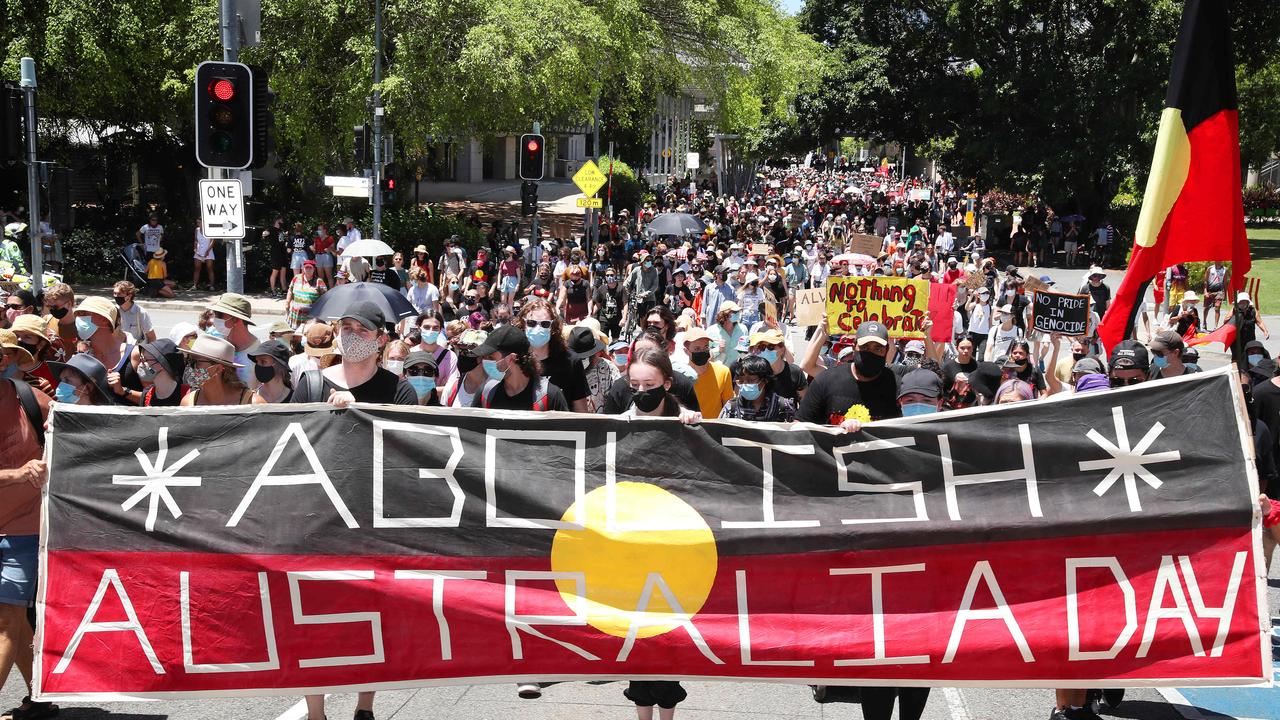Why Australia Day has to change from January 26
Australia, we’ve always believed in a fair go. Now it’s time to take a good hard look at ourselves, and make some tough decisions.

Around this time every year, as the end of January fast approaches, the conversation around the legitimacy of celebrating Australia Day on January 26 amps up.
Questions are raised, and so they should be: As a country, can we really drink to national pride on a day that carries so much trauma, grief and suffering for our First Nations people?
“January 26 represents where it all started to change for our people for the worst, the beginning of intergenerational pain and suffering for our people,” says proud Butchulla and Gawara saltwater man, Isaiah Dawe.
The 28-year-old is the CEO and founder of Aboriginal-led mentoring program ID Know Yourself. The not-for-profit supports Indigenous children who are placed into out-of-home care, an experience that is very personal for Mr Dawe, who himself entered care at just two months old.
January 26 is not a day for celebration – that’s why news.com.au is campaigning to change the date of Australia Day, so we can celebrate the best country in the world, without leaving anyone behind.

“It reminds me of the pain my own people have had to endure, what all my family, community and generations before me have had to go through since that day,” he tells news.com.au.
This Wednesday marks the 234th anniversary of the First Fleet sailing into Sydney Cove in 1788, after Captain James Cook claiming the land for the British Crown. This was in spite of the fact that it’s estimated more than 500 First Nations groups had already inhabited the continent, with the total believed to be about 750,000 people.
“From this day, on 1788 onwards our people have suffered massacres, land theft, stolen children and oppression (which) colonisation forced upon us,” Mr Dawe explains.
January 26: Australia Day vs Survival Day
As a self-proclaimed realist, federal opposition spokeswoman for Human Services Linda Burney, doesn’t believe Australia Day will be changed from January 26.
As the first Aboriginal person to be elected to the NSW parliament and the first Aboriginal woman to serve in the Australian House of Representatives, Ms Burney says she sees the importance of having “a national day”, however it needs to be one “all people can truly celebrate”.
A proud member of the Wiradjuri nation, she says that Australia is still coming to terms with its past. In this sense, the inability to acknowledge the divisive date of January 26 is proof of that “disconnect” between Indigenous and some non-Indigenous Australians.
“It’s very hard for Aboriginal people to celebrate a day that represents the beginning of the end,” she says.

For Ms Burney, the date is a symbol of survival and like many Aboriginal people, she knows January 26 as “Survival Day”.
“That’s basically saying that despite all the subjugation and the land theft, Aboriginal people and cultures have survived,” she adds.
The ‘truth-telling’ all Australians need to hear
For both Mr Dawe and Ms Burney, reconciling the suffering caused by Australia’s colonial must start with education, acknowledgment and truth.
In his work, Mr Dawe has been trying to unravel the cycle of intergenerational trauma which began in 1788, was continued through Government-sanctioned policy through the Stolen Generation and carries on today.
While former prime minister Kevin Rudd made a formal public apology to the victims of forced child removal in 2008, the practice still occurs.
“We know that truth and honesty is the first form of healing,” he says, adding that this must be a joint operation between Indigenous, non-Indigenous Australians and “broader society”.

According to the 2020 Family Matters report published in November last year, while Aboriginal and Torres Strait Islander children represent just six per cent of the total population of Australia’s children, they also make up 37 per cent of all children who have been removed from their parents.
The chair of Family Matters campaign, Sue-Anne Hunter says it’s indicative of a “broken system that is not working for our kids”.
Mr Dawe agrees.
“The kids are being taken away not only from their family but their identity and knowing where they come from,” says Mr Dawe. “Our program is addressing the disproportionate rates of aboriginal kids being removed from their parents, families and culture.”
In doing so, he hopes to instil “strength, hope, love, family and culture back into their lives” and break the cycle. A cornerstone of that is an acknowledgment of the trauma that began and has lingered since 1788.
“We tell our kids what happened to their ancestors, communities and families on this day and the impacts this has had and how this may have potentially impacted why they are in the out of home care system themselves,” he says.
“(Through awareness and truth telling) about this day, believe we will all be able to find reconciliation here in Australia.
“(This includes) finding a day where we can all feel included and celebrated for what is now a very diverse country that we all call home as Australians.”
‘Change is slow, change is hard fought’
In Ms Burney’s decade-plus career in politics, she’s witnessed a shift in attitude towards January 26 shift, especially in the past five years.
This year, Sydney’s Yabun Festival – the Gadigal word that means “music to a beat” – will mark its 20th anniversary, where it will celebrate the survival of Aboriginal and Torres Strait Islander peoples.
“I am firmly of the view that if the decision was being made today, the 26th of January would not be the date chosen, because I think Australia is moving progressively to want to know the full story of this country,” she says.
However, she also acknowledges that “change is incremental”.
“It’s slow and it’s usually hard fought,” she says.
“It’s really important that we have a national conversation about this together and that to me, is extremely powerful.”

Mr Dawe also acknowledges the “hope and optimism” in his work and is encouraged by the swathes of non-Indigenous people who attend Invasion Day rallies across Australia.
“People are becoming more aware towards the day,” he says.
“We need our non-Indigenous people to walk with us on this journey of healing and empowerment for our kids.
“This is also reflective on this date, we can’t feel the healing and the empowerment without non-Indigenous people, it’s a calling to learn about the history and what the date represents.”






